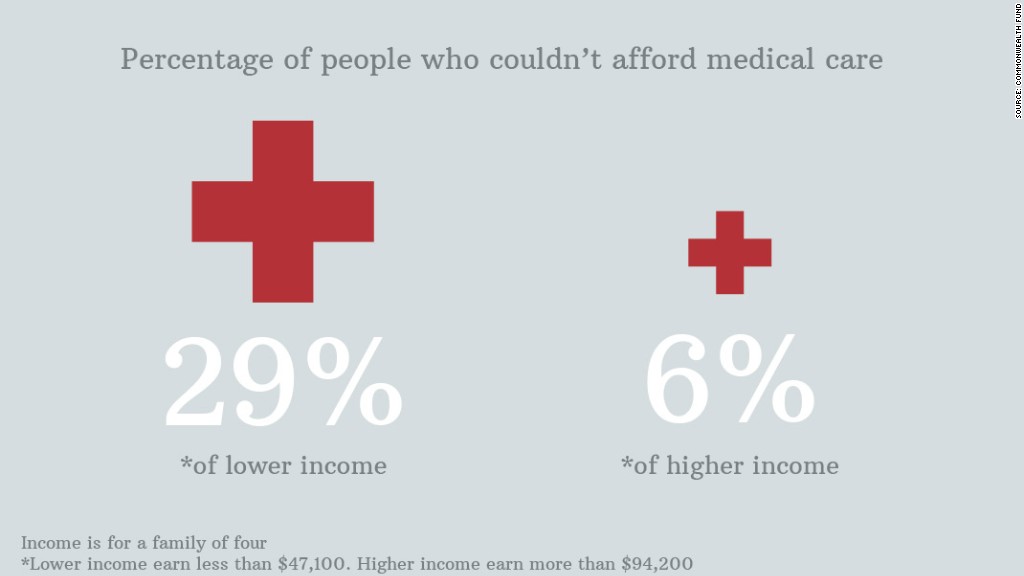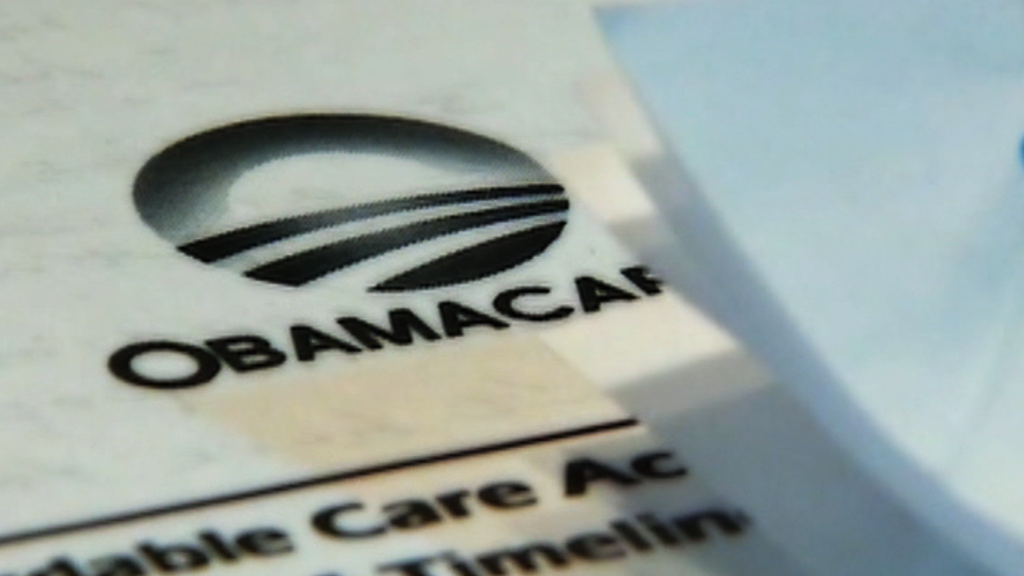
Inequality between the rich and the poor is on the rise, and we're not just talking income.
The wealthy are also getting better access to health care, as well as better treatment. This growing gap is showing up in some surprising ways.
"The inequality is really driven by the higher end," said Thomas LaVeist, director of the Hopkins Center for Health Disparities Solutions. "Most economically advantaged people are getting so much better care than they were even 10 years ago."
President Obama is pushing the Affordable Care Act, known as Obamacare, as one way to increase Americans' economic security because it will allow many uninsured and under-insured Americans to gain more comprehensive coverage and avoid bankruptcy due to medical costs. In a recent speech, he cited Dr. Martin Luther King's observation that injustice in health care is the most shocking and inhumane.
But it will still be tough to close the gap in these three areas where the rich excel:
More doctors: The wealthy have a lot more choices of doctors -- particularly specialists -- they can see. A growing number of doctors are refusing to participate in any insurance plans so only those who can afford to pay up front can book appointments. And more physicians are setting up concierge services, where patients pay a membership fee but are guaranteed to be seen that day.
At the same time, fewer doctors are accepting Medicaid because of declining government reimbursement rates, LaVeist said. So many low-income patients have to wait longer and travel farther to get an appointment. This problem may get even worse as millions more Americans qualify for Medicaid under Obamacare.
As for those in the middle who are signing up for individual insurance plans through the Obamacare exchanges, they'll likely find their choice of doctors and hospitals somewhat limited. Insurers are keeping their networks narrow to help keep premium prices down.
Share your story: Are you signing up for Obamacare?
Better treatment: Many studies have shown that doctors treat lower-income patients differently than their wealthier counterparts, LaVeist said. Those of higher means are more likely to receive better pain management, suffer fewer instances of medical errors and have lower readmission rates to hospitals. They are also more likely to have more treatment options explained to them.
"Health care professionals have the same prejudices as anyone else," LaVeist said. "They'll respond differently to people they think are higher status."
Take the difference in treatment of some Medicare recipients. Some 27% of low-income seniors were given a medication they should not have received, while only 16% of higher-income ones did, according to a University of Pittsburgh study.
Higher-income patients are also more likely to have access to the latest medical breakthroughs, either because they can afford to pay for it out-of-pocket or because they have more comprehensive insurance policies that cover cutting edge treatments.

Better health: Wealthier Americans tend to be in better health than their poorer counterparts. That's due to a mix of education, behavior and environment, experts say. They are more likely to take better care of themselves, but they also have the means to buy healthier food, live in safer, cleaner neighborhoods and engage in physical activity.
A recent Commonwealth Fund study showed the stark contrast: Some 27% of low-income people smoke and 34% are obese, while only 12% of higher-income folks smoke and 25% are obese. Even more surprising, some 16% of poorer Americans have lost six or more teeth, while only 5% of wealthier ones have.
"Higher income people are in a better position to take advantage of the health care system," said David Radley, senior scientist at the Commonwealth Fund.


